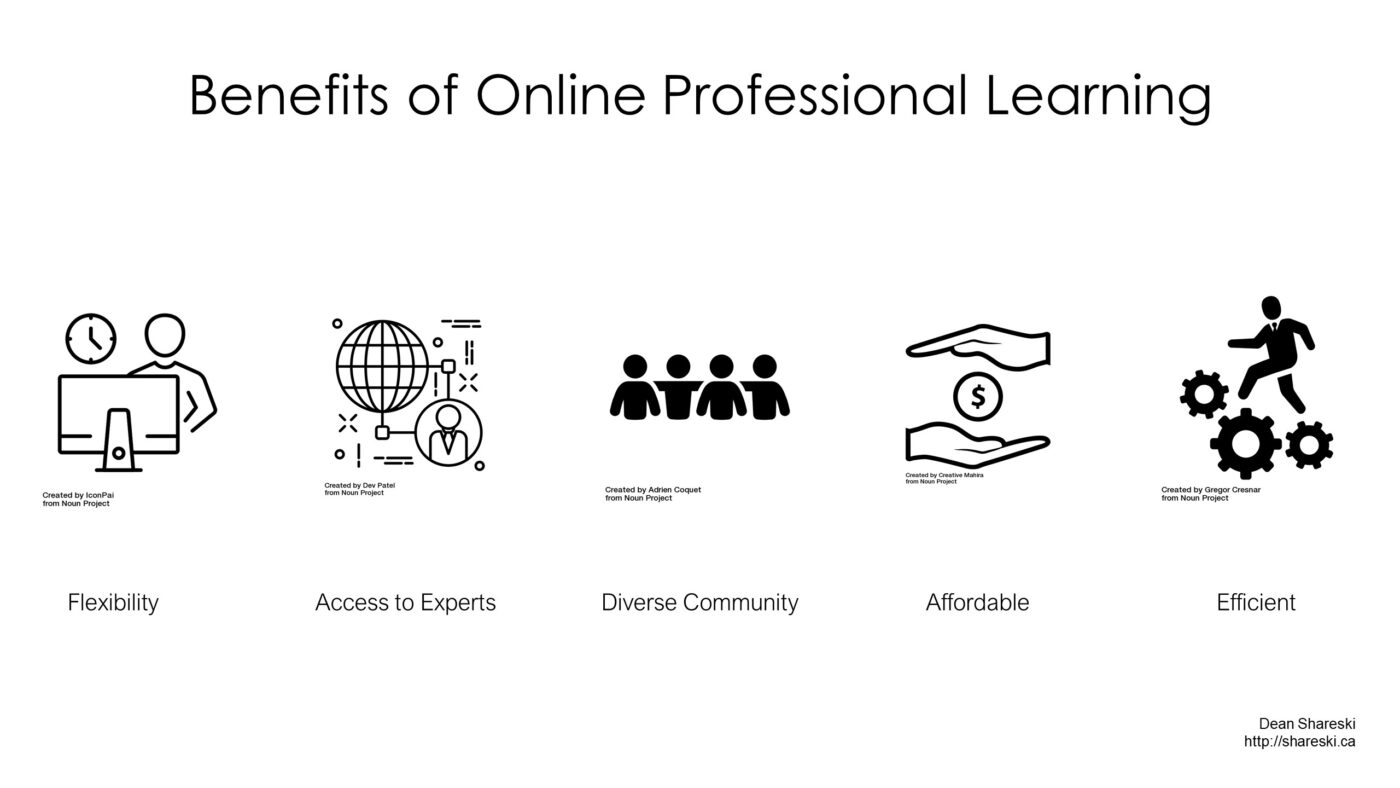I had the privilege of sharing a session last month called “The Future of Professional Learning” based on these previous blog posts. Admittedly I’m still parsing out in my own mind these thoughts and this session was an opportunity to clarify my own thinking but will continue to evolve. In this article, I hope to identify the specific benefits are of both online and in-person professional learning.
While some might argue that this is true for all learning, I do believe there are some significant differences between adult/professional learning and learning as it pertains to school and children. First, adults are there most often by choice. While there is still some obligatory professional learning, adults have more choices than most children. Secondly, adult learning differs from development learning, and finally and I think most often overlooked is in most professional learning settings, the opportunity to build and create community is difficult in that we aren’t together daily and in the case of many elementary students for entire days on end. This means relationships, which are the foundation for school learning, will not play the same role. Each of these differences can probably be argued and discussed in terms of their impact and while there are certain individuals who might share unique experiences, they are by in large in need of consideration.
When it comes to online learning, we are certainly more acutely aware of what its benefits and downsides are. Never have educators been so immersed in online learning as this past year so we are all in better positions to consider what makes it work and what indeed are negative elements.

- Flexibility: Being able to offer PL at all kinds of times, multiple times, and recording sessions created lots of flexibility for learners.
- Access to Experts: Not having to fly people in, meant that in many cases, learners were able to connect with a greater number of experts from a greater number of places than ever before.
- Diverse Community: Participants were also able to connect with others they might not normally connect with because geography and expense were not as relevant. The ability to hear from voices you don’t normally hear from was a real possibility.
- Affordable: Perhaps the most obvious advantage was the way in which we could still offer PL but at significant and in some cases no cost.
- Efficient: Eliminated travel, even at the local level means a meeting could start and end in an hour and you could return to other work and activities with no downtime.

- Change of Environment: In-person learning usually means going somewhere you don’t normally spend time in. Even in a staff room or school library, that represents a change of location. In the same way, we are currently talking more about learning spaces than ever before, meeting and learning in spaces designed for optimal engagement and participation matters.
- Informal Conversations: Ask people their favorite part of a conference or workshop and they’ll often refer to the hallway conversations or coffee time with people. While not often built with intention, these elements of face-to-face learning are critical.
- Fewer distractions: Unless you’re superhuman, checking in and out of online learning is almost the norm. This is not to say you can’t do the same in person, but it’s more difficult. In addition, the fact you have made an effort to be somewhere, typically makes you more accountable. Not always, but more so that in online settings.
- Sensory Additions: This is harder to identify and quantify but online learning is limited to sight and sound. But the smell of the room, the taste of bad coffee, and the feel of chart paper are elements of in-person learning that not only enhance your experience but are part of the community experience as well. See my Twitter thread.
As we think about how to choose the best and most optimal types of professional learning in the future, I think we ought to consider deeply the type of learning we want and what approach is most appropriate. Both are viable.
About the author:
Dean Shareski is an author, blogger, and learner. His work focuses on joyful learning and community. He is currently serving as a Senior Educational Consultant for Advanced Learning Partnerships. You can find him on his site,Ideas and Thoughts, or on Twitter @shareski